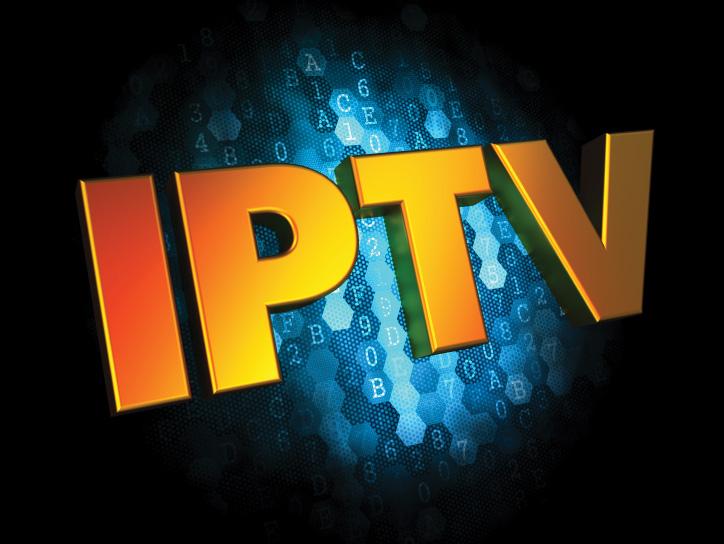The possibility to stream TV, news, movies and other forms of media is extremely vital in today’s world. As a result of the high demand, Internet Protocol Television (IPTV) has swiftly emerged as the preferred method for television networks. This keeps you up to speed on your favorite shows and broadcasts. IPTV means the transmission of media content such as videos or live television, through an IP network.
IPTV (Internet Protocol Television) can connect to the internet, a private local area network (LA), or a wide-area network (WAN). An IPTV solution can be supplied to an IP-enabled TV, mobile phone, tablet, laptop, or PC. It is simple to integrate into a video-on-demand system. Businesses and organizations frequently use IPTV services to deliver television to waiting areas, reception areas, and common spaces.
What is IPTV?
IPTV stands for Internet-based Protocol Television. In this, live or on-demand TV programming and videos are broadcast over the internet. It is a system in which a subscriber obtains digital television service over a broadband or internet connection using Internet protocol technology. It’s not the same as the digital video that millions of people view on platforms like YouTube and Netflix.
But the IPTV solution has a lot of the same accessible, pervasive qualities. Apart from turning into any Live TV shows that are now being aired, the IPTV platform gives viewers the added benefit and convenience of being able to pick the program they wish to view anytime and wherever they want.
Statistical Information
- The Internet Protocol Television (IPTV) Size was valued at USD 72.24 billion in 2020.
- It is predicted to grow at a CAGR of 17.89 percent from 2021 to 2026 to reach USD 194.21 billion.
- As a result of technological advancements, the number of IPTV subscribers has increased.
- The growth of internet protocol television is being fueled by government initiatives in emerging nations like India that prefer digital television. IPTV services demand is growing at a 30 to 35 percent annual rate around the world.
How Does IPTV Work?
Traditional television transmits analog signals to users via cables. This allows them to view only the currently broadcasted program. Users can only manage when and what they see in these cases by using external recording equipment. How IPTV works vary substantially. Unlike traditional television, which can only broadcast live programming, IPTV uses servers to store content.
This allows users the ability to request a program at any time. After a user chooses a show to view, the information is converted to digital format and sent to their playback device in packets over the internet protocol.
The files will be compressed and optimized for streaming before they reach the end-users. However, for all of the above to work, your TV must be able to interpret signals sent through the internet protocol.
However, not all TVs can set up IPTV services immediately because most of them cannot read signals without assistance. If your TV is not IPTV compatible, you will need to get an IPTV set-top box.
Recommended Reading
Types of IPTV Services
You can choose from a variety of IPTV services based on your requirements and suitability. Here are some of the best IPTV streaming apps type.
1. Live TV
Similar to traditional television, live IPTV allows viewers to live-stream television programming in real time. It means you can add Live TV to currently broadcasted TV shows with or without interactivity. It is most commonly used to broadcast live events such as sporting events, conferences, and so on.
2. Video on Demand
There is a provision of individual delivery of video content to a subscriber. It enables users to view any movie from the VOD server’s media library. VOD IPTV services operate in the same way as with most OTT service providers. You pay a subscription fee and get access to a large library of videos you can request to watch at will.
3. Time-shifted TV
Time-shifted TV enables subscribers to watch live broadcasts later so they can playback and resume at their convenience. There is also a rewind option that is given for TV programs.
Real-Time Examples of IPTV Services
1. AT & T
AT&T TV provides some different packages with the lower tier plus plan that consists of around 30 channels. It is the best option if you are looking to discard cable. Now, this becomes one of the best legal IPTV services around once you dive into the more expensive packages.
It includes cross-platform capabilities. At the same time, you can view shows on multiple devices. HBO is also included in it. You will be able to watch TV channels for the whole family with TNT, AMC, Nickelodeon, and more. You will be given plenty of DVR space as a bonus.
2. Fubo TV
Fubo TV has the EPG guide available and offers 100+ channels to subscribers. You can watch sports channels. Fubo TV package is starting at $50 a month.
Conclusion
The future of IPTV is trending & increasing day by day. People currently have less time to watch television. So, the demand for personalized programming is at an all-time high. As a result, having the flexibility that the IPTV platform provides is becoming increasingly important in today’s environment.
And, with internet video platforms offering on-demand programming at an all-time high, the television industry must find a means to compete. IPTV solution turned out to be the ideal option! It is also a popular option for providing TV services in a hotel or residential building.
IPTV has a considerably greater scope, and it is also used in subscriber-based telecommunication networks. If you are still wondering how to start IPTV business, you should opt for the IPTV providers for a seamless way to build your own IPTV business.

